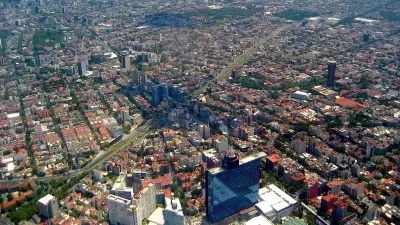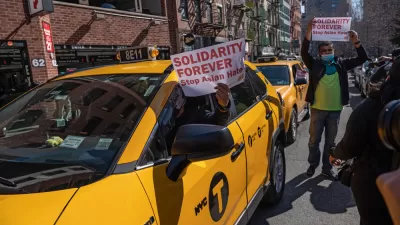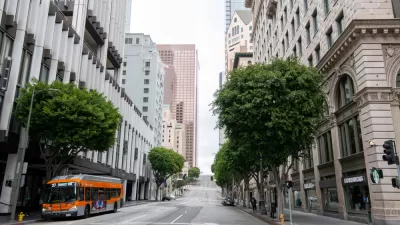As the Mexican government charts the country’s recovery from COVID-19, a newly published paper charts national solutions to urban transportation and housing challenges that will put Mexico’s cities on a path to prosperity and resilience.

 The COVID-19 pandemic has hit those living in urban areas the hardest and is exacerbating these inequalities. Poor urban housing and transport also have an economic toll; the consequences of poor urban mobility cost an estimated 3–5% of the country’s GDP each year. Issues of transport and housing have often been siloed, but it is essential that the two sectors are coordinated together.
The COVID-19 pandemic has hit those living in urban areas the hardest and is exacerbating these inequalities. Poor urban housing and transport also have an economic toll; the consequences of poor urban mobility cost an estimated 3–5% of the country’s GDP each year. Issues of transport and housing have often been siloed, but it is essential that the two sectors are coordinated together.
This new paper explores urban housing and transport in tandem. It recommends policies that Mexico's national government could adopt to boost the country’s COVID-19 recovery, improve the lives and livelihoods of millions of people and protect its cities into the future.
The paper sets out policy reforms for the Mexican federal government to take that will create more compact, connected and clean cities, including:
- Adopt a national urban policy that includes clearly defined roles and encourages coordination between different sectors (housing, transport and land use) and levels of government.
- Improve the quality of existing housing and surrounding public space, rather than focusing on new builds.
- Ensure affordable housing options in central urban areas with good transport for those on low-incomes, helping to build inclusive cities.
- Increase the proportion of federal funding spent on public and active travel rather than car-based mobility by investing in dedicated bus lanes, wider sidewalks and protected bike lanes.
- Support city governments, particularly those that may lack the resources and capacity, to develop comprehensive urban mobility strategies that meet the needs of their residents.
These policies will bring huge social and economic benefits such as increased productivity, reduced inequality and improved health and wellbeing. They also bring significant advantages for the environment and, ultimately, will put Mexico’s urban areas on a path to a more sustainable and inclusive future.
Downloads:
- Compact, Connected, Clean and Inclusive Cities in Mexico: An agenda for national housing and transport policy reform
- Resumen para los formuladores de politicas - Ciudades Compactas, Conectadas, Limpias E Incluventes En Mexico
- Summary - Compact, Connected, Clean and Inclusive Cities in Mexico: An agenda for national housing and transport policy reform
This paper was created in partnership with the OECD and LSE Cities.
FULL STORY: Compact, Connected, Clean and Inclusive Cities in Mexico

Maui's Vacation Rental Debate Turns Ugly
Verbal attacks, misinformation campaigns and fistfights plague a high-stakes debate to convert thousands of vacation rentals into long-term housing.

Planetizen Federal Action Tracker
A weekly monitor of how Trump’s orders and actions are impacting planners and planning in America.

Chicago’s Ghost Rails
Just beneath the surface of the modern city lie the remnants of its expansive early 20th-century streetcar system.

Bend, Oregon Zoning Reforms Prioritize Small-Scale Housing
The city altered its zoning code to allow multi-family housing and eliminated parking mandates citywide.

Amtrak Cutting Jobs, Funding to High-Speed Rail
The agency plans to cut 10 percent of its workforce and has confirmed it will not fund new high-speed rail projects.

LA Denies Basic Services to Unhoused Residents
The city has repeatedly failed to respond to requests for trash pickup at encampment sites, and eliminated a program that provided mobile showers and toilets.
Urban Design for Planners 1: Software Tools
This six-course series explores essential urban design concepts using open source software and equips planners with the tools they need to participate fully in the urban design process.
Planning for Universal Design
Learn the tools for implementing Universal Design in planning regulations.
planning NEXT
Appalachian Highlands Housing Partners
Mpact (founded as Rail~Volution)
City of Camden Redevelopment Agency
City of Astoria
City of Portland
City of Laramie





























